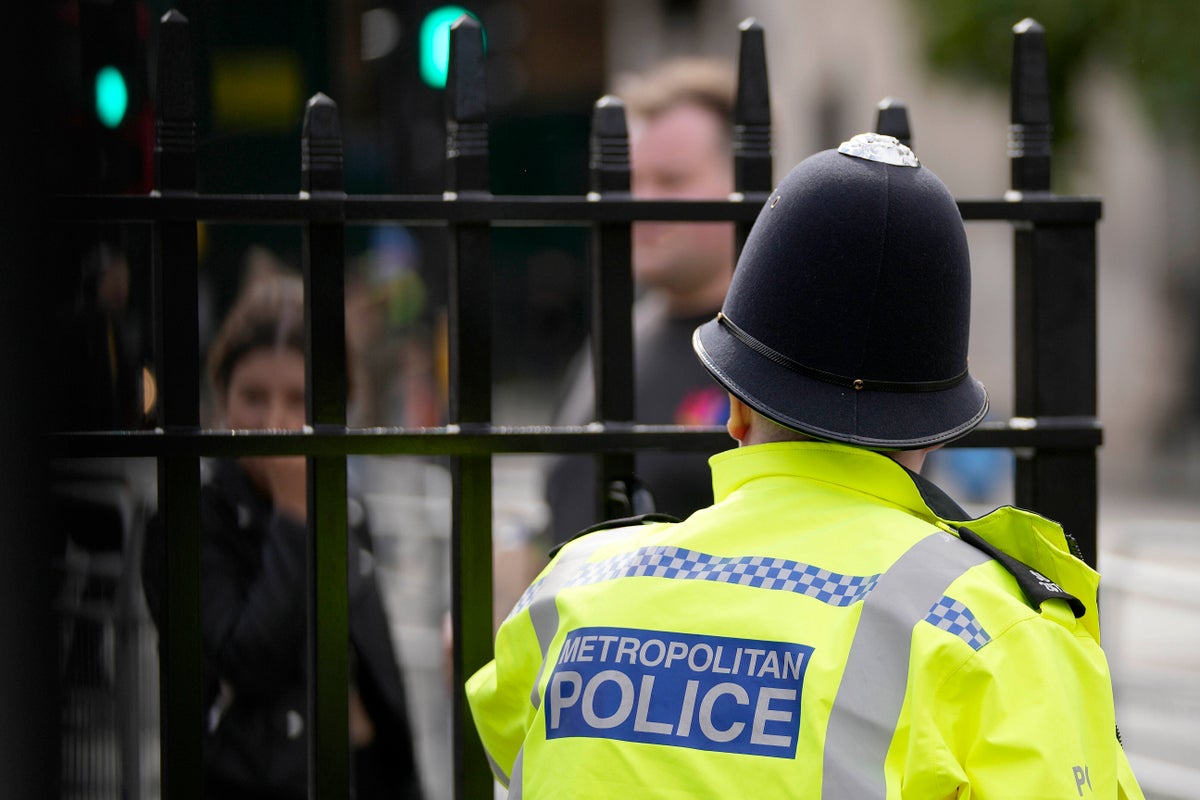
Hundreds of London police officers are facing dismissal as the department steps up efforts “to root out those who are corrupt” after a series of scandals eroded public trust and a scathing report found it was institutionally racist, homophobic and misogynistic.
The Metropolitan Police Service said Tuesday that more than 1,000 officers are currently suspended or on restricted duties. That means the public is likely to be bombarded with stories of police misconduct over the next few years as the department works through the backlog of cases and around 60 officers face disciplinary proceedings each month.
“This is going to take one, two or more years to root out those who are corrupt,” Deputy Assistant Commissioner Stuart Cundy said as he updated reporters on efforts to reform the department.
London’s police force, known by many as Scotland Yard, is under immense pressure to fire officers accused of misconduct and change its male-dominated culture after a serving officer kidnapped and murdered a young woman two years ago and another was convicted of a series of sexual assaults. An independent review found that the department had failed to properly vet and train officers, and had allowed many to remain on the job even after they were accused of domestic abuse or racial harassment.
The scandals have undermined public confidence in Britain’s largest police force, which has more than 34,000 officers serving about 9 million people across the capital. Rebuilding that trust is crucial in a country where most officers don’t carry guns and the police rely on the support of the public to do their jobs, a model known as “policing by consent.”
The “eye-watering” figures released Tuesday are part of a painful but necessary process as the department tackles corruption in its ranks, said Zoe Billingham, who for 12 years led the Inspectorate of Constabulary in England and Wales.
“The whole of the British policing model is built on the concept of legitimacy, and if the police aren’t seen as legitimate in the eyes of the public, if they can’t police by consent, then the whole fabric of law and order begins to break down,” she told the BBC.
The figures were released a year after Commissioner Mark Rowley took over leadership of the Metropolitan Police, pledging to reform the department.
In March, Rowley apologized after an independent review concluded that the department had lost the confidence of the public because of deep-seated racism, misogyny and homophobia. Louise Casey, an expert on victims’ rights and social welfare who led the review, concluded that the force had to “change itself” or risk being broken up.
The department said Tuesday that it was making progress on Rowley’s commitment to change the culture of the department and speed up the dismissal of corrupt officers.
Around 100 officers have been dismissed for gross misconduct over the past 12 months, an increase of 66% over historic dismissal rates, the department said Tuesday.
The number of officers awaiting gross misconduct hearings more than doubled to 275, with 38 of those cases involving allegations of violence against women and 42 related to discrimination.
Overall, the number of misconduct allegations reported during the period jumped 90% to 1,668. A third of those incidents were reported by police officers or staff.
The department also said it had improved leadership training for police sergeants, started a program to increase the number of female officers trained to carry firearms, and boosted efforts to increase the number of women and minority officers in the prestigious Parliamentary and Diplomatic Command, which protects politicians, royals and diplomatic officers.
Both Wayne Couzens, the officer who was convicted of kidnap and murder, and David Carrick, the officer convicted for a series of rapes and sexual assaults, were members of the parliamentary protection unit.
“We hope that the progress set out today reassures Londoners that we are doing all we can to deliver an organization they deserve and our people are proud of,” Cundy said.







